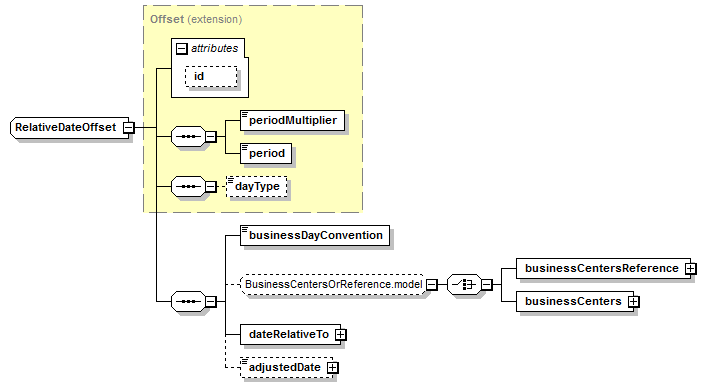
Namespace: |
|
Content: |
complex, 1 attribute, 8 elements |
Defined: |
globally in fpml-shared-5-8.xsd; see XML source |
Includes: |
definitions of 3 elements |
Used: |
at 18 locations |

XML Representation Summary |
||||||
<... |
||||||
|
||||||
> |
||||||
|
||||||
</...> |
||||||
|
AdjustedRelativeDateOffset (as extension base),
|
RelativeDates (as extension base)
|
|
Type Derivation Tree
Period (extension)
|
|
<xsd:complexContent>
<xsd:extension base="Offset">
<xsd:sequence>
</xsd:sequence>
</xsd:extension>
</xsd:complexContent>
</xsd:complexType>
|
Type: |
IdentifiedDate, simple content |
|
xsd:date
|
Type: |
BusinessDayConventionEnum, simple content |
|
enumeration of xsd:token
|
Enumeration: |
|
||||||||||||||||||||||||
minLength: |
0
|
Type: |
DateReference, empty content |
|
XML schema documentation generated with DocFlex/XML 1.9.0 using DocFlex/XML XSDDoc 2.8.0 template set. All content model diagrams generated by Altova XMLSpy via DocFlex/XML XMLSpy Integration.
|